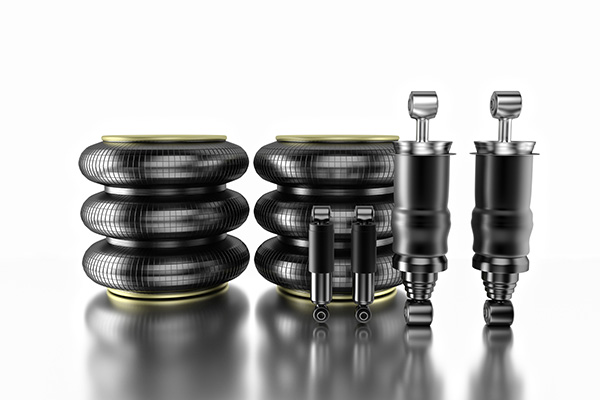
Mercedes-Benz vehicles are known for their luxury, comfort, and smooth ride, thanks in part to their advanced air suspension systems. But what happens when that air suspension starts causing more headaches than comfort? If you've noticed your once-gliding ride feels more like a bumpy mess or your car suddenly sags to one side, you might be dealing with air suspension problems. Let’s explore what these issues entail, why they happen, and how to fix them to restore your Mercedes to its luxurious best.
What Is Air Suspension and Why It Matters
Air suspension systems replace traditional coil springs with air springs, which are essentially rubber and plastic bags filled with air. The air suspension system is designed to adjust the height of your vehicle automatically, providing a smooth, cushioned ride that’s adaptable to various driving conditions. This technology enhances comfort and offers improved handling, especially on uneven surfaces.
While air suspension can elevate your driving experience, it has flaws. Over time, components like air struts, air compressors, and the control module can wear out, leading to a host of performance issues. Understanding the signs of air suspension failure is crucial if you want to avoid costly repairs and keep your Mercedes in top-notch condition.
Common Symptoms of Air Suspension Problems
Sagging or Uneven Ride Height
One of the most noticeable symptoms of air suspension issues is your Mercedes sagging on one side or sitting lower than usual. This uneven ride height is often due to a leak in the air spring or a failing air strut. If you notice your car tilting to one side or the front and rear sitting at different heights, it’s a sign that your air suspension is not maintaining the proper level of inflation.
Warning Lights on the Dashboard
Modern Mercedes-Benz models are equipped with sensors that monitor the air suspension system. If there’s a problem, you’ll likely see a suspension warning light or error message on your dashboard. Ignoring these warnings can lead to further damage, so it’s best to address the issue as soon as it appears.
Bumpy or Harsh Ride Quality
Your Mercedes should glide over bumps and potholes effortlessly. If you’re feeling every little bump in the road, it’s a sign that your air suspension isn’t absorbing shocks as it should. A failing air suspension can result in a noticeably harsher and less comfortable ride.
Noisy Air Compressor
The air compressor is responsible for pumping air into the suspension bags. If it’s constantly running or making unusual noises, it’s likely struggling to maintain the air pressure needed for a smooth ride. This could indicate a leak in the system or a failing compressor that’s on its last legs.
What Causes Air Suspension Failures?
Understanding the root causes of air suspension problems can help you prevent them before they become serious issues. Here are some of the most common reasons why your Mercedes air suspension might be acting up:
Air Leaks in the Air Springs or Struts
Over time, the rubber components in the air springs and struts can dry out, crack, or develop holes. Even a small leak can cause the air suspension to lose pressure, leading to uneven ride height and poor ride quality.
Compressor Failure
The air compressor is a crucial part of the air suspension system, but it can wear out due to overuse, especially if it’s compensating for leaks elsewhere in the system. A failing compressor can lead to a complete suspension collapse if not replaced promptly.
Faulty Air Suspension Sensors
The system relies on sensors to detect vehicle height changes and adjust the suspension accordingly. If these sensors malfunction, they can send incorrect data to the control module, resulting in improper suspension adjustments.
Aging and Wear
Like any other component in your car, the air suspension system is subject to wear and tear over time. Regular exposure to harsh road conditions, extreme temperatures, and moisture can accelerate the deterioration of the suspension components.
How to Fix Air Suspension Problems
If you suspect air suspension issues, it’s essential to get your car inspected as soon as possible. Here’s what you can do to address the problem:
Leak Detection and Repair
If air leaks are the issue, the best solution is to locate and repair or replace the damaged air springs or struts. While some leaks might be fixable, older components often require replacement to ensure long-term reliability.
Compressor Replacement
A noisy or failing air compressor needs immediate attention. If the compressor can’t generate enough air pressure, your suspension system won’t function correctly. Replacing the compressor can be a straightforward fix, but it’s important to also check for any underlying issues that might have caused it to fail prematurely.
Sensor Calibration and Replacement
If the problem lies with the suspension sensors, recalibrating or replacing the faulty sensors can resolve the issue. This process typically requires specialized diagnostic tools, so it’s best left to a professional repair shop familiar with Mercedes-Benz systems.
Consider Aftermarket or Conversion Kits
For some owners, the cost of maintaining the air suspension system can be prohibitive. In such cases, switching to a traditional coil spring conversion kit can be a cost-effective alternative. This option eliminates the complexity of the air suspension system, providing a more reliable ride over the long term.
Worried about your Mercedes-Benz air suspension? Bring your vehicle to CK Auto Exclusive for expert diagnostics and repair services. We’ll have your car riding like new in no time. Schedule your appointment today!